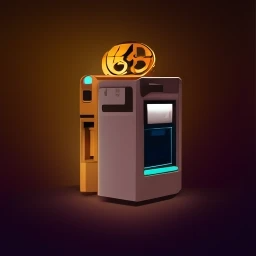Introduction
Social Impact Tokens are transforming the way charitable contributions and public goods funding operate. By leveraging blockchain technology, these digital assets introduce transparency, efficiency, and traceability into philanthropy. Traditional donation models often suffer from inefficiencies, lack of trust, and high operational costs, whereas blockchain-based systems offer innovative solutions to these challenges.
This article explores how Social Impact Tokens work, their potential benefits, challenges, and real-world applications in philanthropy and public goods funding.
Understanding Social Impact Tokens
Social Impact Tokens are blockchain-based digital assets that represent a commitment to social or environmental causes. These tokens function as a bridge between donors, organizations, and beneficiaries, ensuring accountability and trust in the donation process. By recording transactions on a decentralized ledger, contributors can track how their funds are being used, ensuring that their donations reach the intended recipients effectively.
Unlike traditional fundraising methods, which often involve intermediaries, Social Impact Tokens provide direct, peer-to-peer support for causes. This decentralization reduces administrative costs and improves efficiency in funding distribution.
The Role of Blockchain in Charity and Public Goods Funding
Blockchain technology plays a crucial role in enabling Social Impact Tokens by offering the following advantages:
1. Transparency and Accountability of Social Impact Tokens
One of the biggest concerns in philanthropy is the lack of transparency. Blockchain’s immutable ledger ensures that every transaction is recorded permanently. This allows donors to verify exactly how their contributions are being used.
2. Efficiency and Lower Costs of Social Impact Tokens
Traditional charity organizations often involve multiple intermediaries, leading to high operational costs. Blockchain technology automates and streamlines transactions, reducing fees associated with fundraising and fund distribution.
3. Smart Contracts for Conditional Donations
Smart contracts enable programmable donations. For instance, a donor can set conditions under which funds will be released to a charitable organization. This ensures that money is used effectively and for the intended purpose.
4. Global Accessibility of Social Impact Tokens
Blockchain-based donations can be sent across borders without requiring expensive intermediaries. This global reach helps smaller organizations and grassroots initiatives receive funding directly, empowering communities that need support the most.
Use Cases of Social Impact Tokens
1. Disaster Relief and Humanitarian Aid
In times of crisis, Social Impact Tokens can provide a fast and transparent way to distribute aid. Instead of relying on slow bureaucratic processes, blockchain-based solutions can ensure that donations reach affected communities promptly.
For example, following natural disasters, organizations can issue tokens that represent essential supplies such as food, water, and medical aid. Donors can then purchase these tokens, which are redeemable by beneficiaries, ensuring that aid reaches those in need efficiently.
2. Environmental Conservation and Carbon Credits
Social Impact Tokens are increasingly being used for environmental projects. Blockchain-based carbon credit systems reward individuals and companies for reducing their carbon footprint. By tokenizing carbon offsets, organizations can track and trade credits more transparently.
For instance, some blockchain platforms allow users to purchase tokenized trees, where each token represents a tree planted. This initiative enables direct contributions to reforestation efforts while ensuring that donors can verify the impact of their contributions.
3. Education and Scholarships
Many educational institutions and non-profits are exploring Social Impact Tokens to fund scholarships. Instead of relying on centralized organizations, these tokens allow direct financial support to students in need.
A blockchain-based scholarship system ensures that funds are used strictly for educational purposes, reducing misuse and fraud. Additionally, smart contracts can be programmed to release tuition payments directly to institutions based on academic performance.
4. Health and Medical Assistance
Social Impact Tokens can revolutionize healthcare funding by allowing micro-donations that directly support medical treatments, research, and access to essential medicines. Blockchain’s transparency ensures that all funds are utilized for their intended medical purposes.
In some cases, decentralized health platforms allow patients to raise funds for surgeries or treatments, with donations stored in smart contracts that release payments directly to hospitals upon successful verification.
5. Basic Income and Poverty Reduction
Blockchain-based universal basic income (UBI) projects are using Social Impact Tokens to provide financial support to marginalized communities. These programs distribute tokens to individuals who can redeem them for essential goods and services.
Such initiatives empower underprivileged populations by providing them with direct access to financial resources without intermediaries. This reduces corruption and ensures that aid reaches those who need it most.
Challenges of Implementing Social Impact Tokens
Despite their benefits, Social Impact Tokens face several challenges that must be addressed to ensure widespread adoption.
1. Regulatory Uncertainty
Many governments have yet to establish clear regulations regarding blockchain-based philanthropy. Compliance with financial laws and anti-money laundering (AML) regulations remains a key challenge for organizations issuing Social Impact Tokens.
2. Adoption Barriers
Not all charitable organizations or donors are familiar with blockchain technology. Lack of technical knowledge can hinder adoption, making it essential to develop user-friendly platforms that simplify token transactions.
3. Volatility of Crypto Assets
Cryptocurrencies, including some Social Impact Tokens, are subject to market fluctuations. To mitigate this issue, stablecoins pegged to fiat currencies are increasingly being used for philanthropic initiatives.
4. Fraud and Misuse Risks
While blockchain enhances transparency, it does not eliminate all risks of fraud. Malicious actors may still attempt to exploit these systems, making it essential to implement strong verification and security measures.
Future of Social Impact Tokens
The potential of Social Impact Tokens is vast, with new applications emerging across various sectors. Several trends indicate a promising future for blockchain-based philanthropy:
- Integration with Decentralized Finance (DeFi): Charities and non-profits can leverage DeFi solutions to earn yield on their funds, maximizing the impact of donations.
- Tokenized Volunteer Work: Some projects are exploring tokens as rewards for volunteering, incentivizing individuals to contribute time and effort to social causes.
- Corporate Social Responsibility (CSR) Initiatives: Companies are increasingly using Social Impact Tokens to demonstrate their commitment to sustainability and ethical business practices.
As technology advances and regulatory frameworks evolve, Social Impact Tokens will likely become an integral part of global philanthropy, enhancing efficiency, transparency, and accessibility in social funding.
Conclusion of Social Impact Tokens
Social Impact Tokens represent a groundbreaking innovation in the world of philanthropy and public goods funding. By utilizing blockchain technology, these tokens address many of the inefficiencies and trust issues that plague traditional charitable models. With benefits such as transparency, reduced costs, and improved efficiency, Social Impact Tokens have the potential to reshape the landscape of social impact initiatives.
Despite the challenges, continued development and adoption of blockchain-based philanthropy could revolutionize the way individuals and organizations contribute to positive change. As more stakeholders recognize the advantages of these systems, the future of social funding will likely be driven by decentralized and tokenized solutions.


















